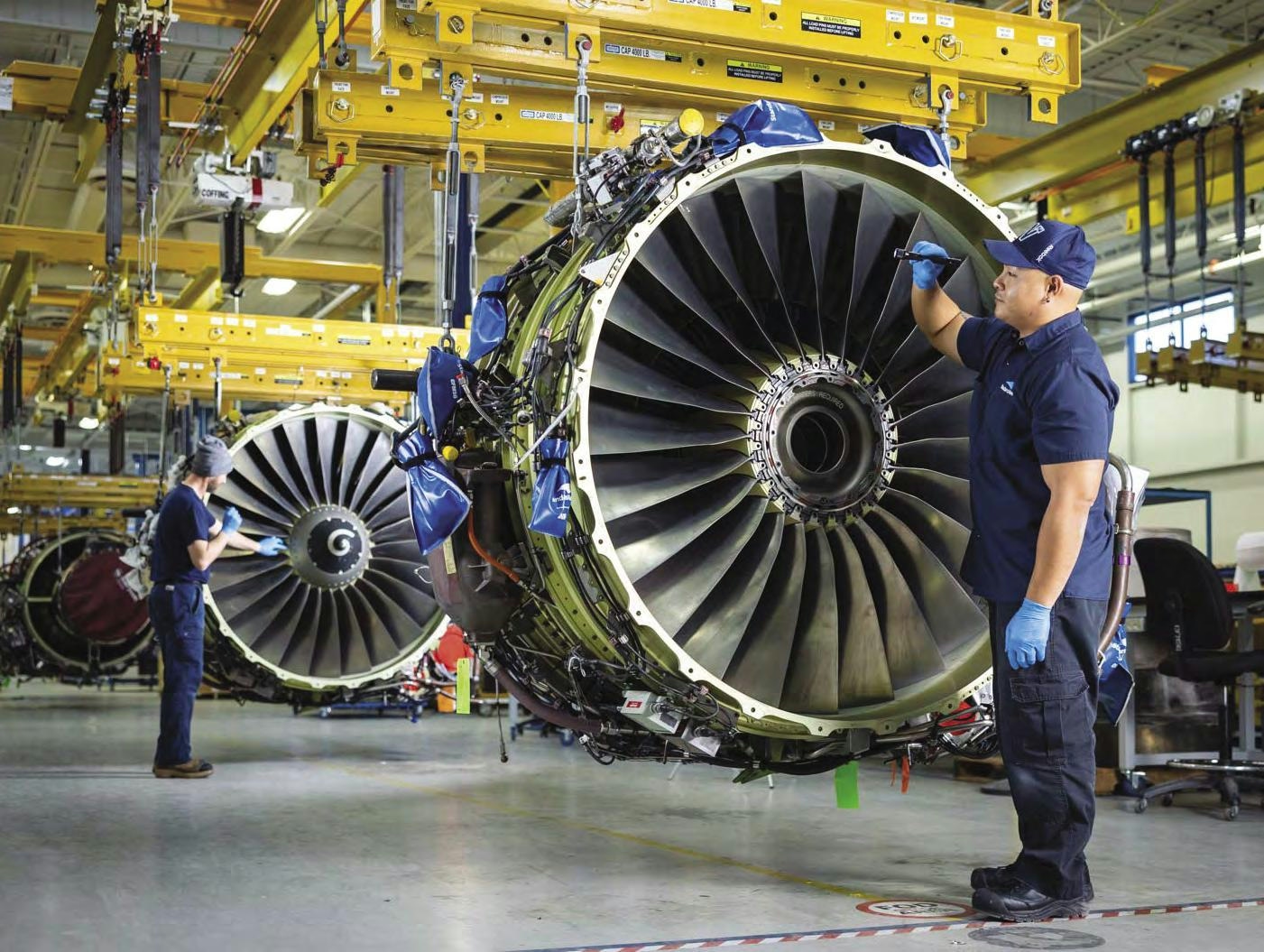AeroGenie — 您的智能副驾驶。
热门趋势
Categories
IAI Approves 777-300ERSF for Trent 1000 Engines, STC Approval Pending

IAI Approves 777-300ERSF for Trent 1000 Engines, STC Certification Pending
Israel Aerospace Industries (IAI) has officially approved its 777-300ERSF freighter, known as the ‘Big Twin,’ to carry the Rolls-Royce Trent 1000 engine. This development marks a significant milestone in air cargo logistics, positioning the 777-300ERSF as only the second aircraft type—after the Boeing 747 freighter—authorized to transport the large and complex Trent 1000 engine, which powers the Boeing 787 fleet.
Expanding Capabilities for Engine Transport
An IAI spokesperson explained that accommodating all 777 engines on the 777-300ERSF main deck was a fundamental design criterion from the outset. Following customer requests to explore the feasibility of carrying additional engine types, IAI successfully evaluated and incorporated the Trent 1000 option. The spokesperson emphasized that after thorough review, the company deemed the option acceptable and is now offering it to customers.
The Trent 1000 engine, particularly its advanced TEN (Thrust, Efficiency, and New Technology) variant, measures approximately 186.5 inches in length with a fan diameter of 112 inches and can generate up to 78,000 pounds of thrust. Its primary competitor, the GE GEnx engine—also used on the Boeing 787—is slightly smaller and produces up to 76,100 pounds of takeoff thrust.
Market Implications and Certification Status
The ability to transport the Trent 1000 engine is expected to enhance the 777-300ERSF’s competitive position amid rising demand for widebody freighter conversions. Industry analysts at IBA highlight that the scarcity of suitable 777-300ER feedstock is intensifying demand, driving the price of converted 777-300ERSFs to between $75 million and $80 million. Prices may escalate to $100 million if maintenance is required for GE90-105 engines. With Boeing planning to cease 777F production in 2027, competitors are likely to capitalize on their existing conversion capabilities to meet the growing need for widebody freighter capacity.
IAI reports that the Supplemental Type Certificate (STC) process for the 777-300ERSF is nearing completion with both the Civil Aviation Authority of Israel (CAAI) and the U.S. Federal Aviation Administration (FAA). The company anticipates receiving the STC within the coming weeks and has already secured approximately 60 conversion orders. Earlier projections indicated that CAAI and FAA approvals would be obtained by early May 2025.
Progress on Airbus A330-300BDSF Programme
In parallel, IAI is advancing its Airbus A330-300BDSF programme, having recently completed the main cargo door cutting—a critical milestone for this next-generation, medium-size freighter. The spokesperson noted that the prototype is in an advanced stage, with all floor beams replaced and the cargo door cut on July 17. The company expects to secure CAAI and FAA STC approvals by mid-2026.
With the forthcoming STC approval for Trent 1000 engine transport, the 777-300ERSF is set to become a highly competitive option in the evolving freighter market, offering operators enhanced flexibility and capacity amid tightening supply and escalating costs.

Emirates Unveils Cabin Design for New Boeing 777X

Eighteen Years On, the Airbus A380 Remains Central to a $34 Billion Airline

How a boom in luxury airline seats is slowing down jet deliveries

Navitaire Outage Attributed to Planned Maintenance

DigiYatra Debuts Outside Aviation at India AI Impact Summit

Vietnam Orders Strengthen Boeing’s Commercial Outlook

Airbus Signals Uncertainty Over Future A400M Orders

JobsOhio Awards $2 Million Grant to Hartzell Propeller for Innovation Center

Collins Aerospace Tests Sidekick Autonomy Software on YFQ-42A for U.S. Air Force CCA Program

How the Airbus A350-1000 Compares to the Boeing 777
